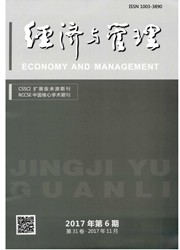

 中文摘要:
中文摘要:
基于中国9个省1396户城镇家庭的面板数据,运用系统广义矩估计法对一个包括习惯形成和不确定性的欧拉方程进行估计以考察家庭消费是否跨时演进,研究结果表明,偏好的设定偏误是传统的生命周期——持久收入模型不能很好地诠释中国城镇家庭消费决策的一个原因,在解释消费决策的影响因素时假定偏好的跨时可分性会得出错误的结论,城镇居民消费偏好的跨时不可分性以及由收入和支出不确定性引发的预防性储蓄动机是导致居民消费倾向持续偏低的重要原因。
 英文摘要:
英文摘要:
Based on the panel data of 9 provinces of1396 urban households in China,using the System GMM Estimation to examine whether the evolution of household consumption on a habit formation and the uncertainty of the Euler equation,the results shows that preference setting bias is the traditional life cycle--One reason for the permanent income model can not be a good interpretation of Chinese urban household consumption decisions.Assume that preferences in the factors affecting the interpretation of consumer decision-making when the intertemporal separability will draw a wrong conclusion,urban residents consumer preferences across without separability and by income and expenditure uncertainty induced precautionary savings motive is an important cause of the propensity to consume the sustained low.
 同期刊论文项目
同期刊论文项目
 同项目期刊论文
同项目期刊论文
 期刊信息
期刊信息
